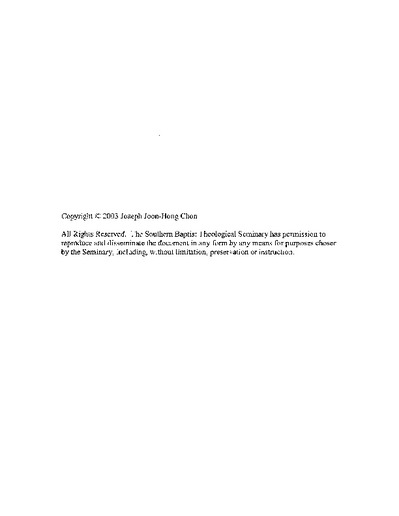| dc.description.abstract | This dissertation examines the evangelistic theology of Albert B. Simpson and demonstrates how his theology affected his practice of evangelism. A corollary purpose of this work is to provide a framework by which a pastor or an evangelist could evaluate a theology of evangelism in a contemporary setting. Simpson's theology and practice of evangelism are examined mainly along the specific theme of union with Christ.
Chapter 1 states the thesis and presents background information, including the research methodology and limitations. A theology of evangelism is defined. Chapter 2 delineates a biographical sketch of Simpson. It includes his birth, childhood, education, conversion, and early Presbyterian ministries. Simpson's responses to the cultural and social context of the years 1881 through 1912 are examined.
Chapter 3 examines Simpson's theology of evangelism. Using the theological theme of union with Christ, key concepts that relate to evangelism are examined. These concepts include the interpretation of Scriptures, the Fourfold Gospel, the nature of sin, the atonement and the cross of Christ, the death and resurrection of Christ, salvation, regeneration, faith and repentance, justification, God's sovereignty versus man's free will, the exclusiveness of salvation in Christ, sanctification, and the church.
Chapter 4 focuses on evangelistic practices that Simpson used to reach unchurched people in New York City and unreached people around the world. Simpson's evangelistic ministries were carried out through the Gospel Tabernacle and the Christian and Missionary Alliance. His evangelistic practices included preaching, music ministries, prayer ministries, healing ministries, social ministries, publications, the Missionary Training Institute, and cooperative ministries.
Chapter 5 concludes with an evaluation of a pastor-evangelist, sets forth specific conclusions from each chapter, and provides implications for a contemporary model for pastoral evangelism. | en_US |

